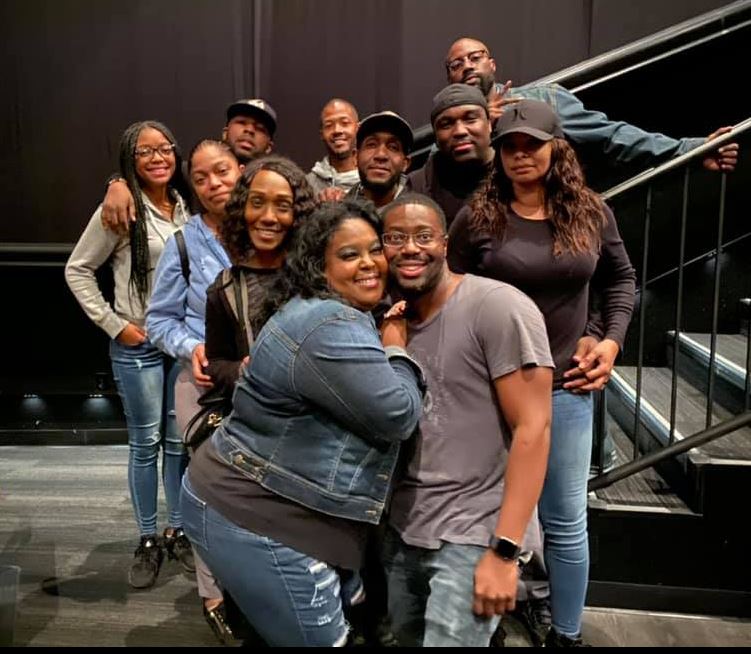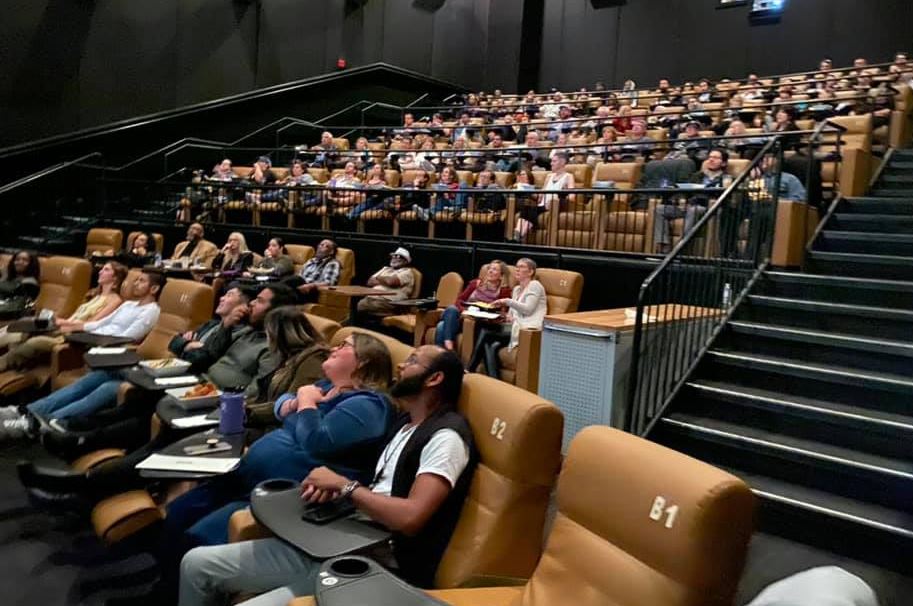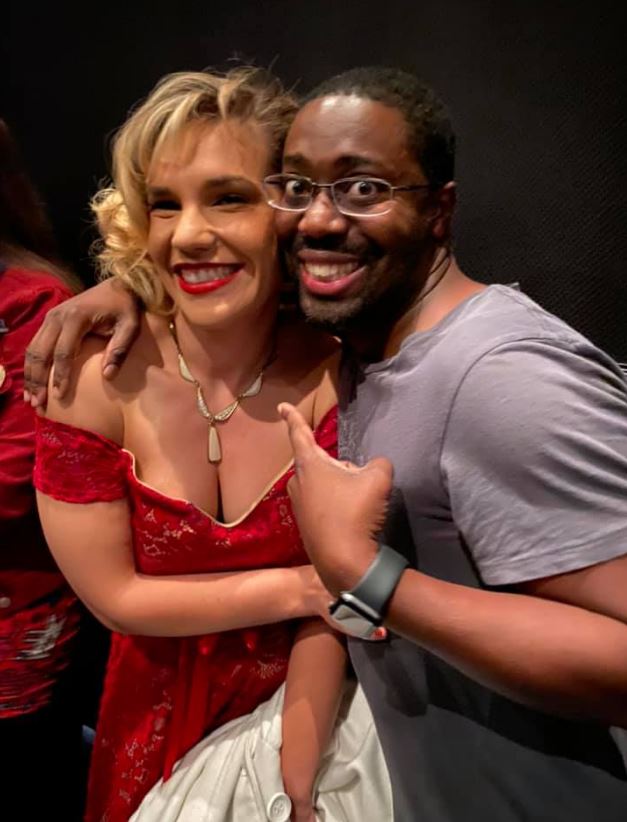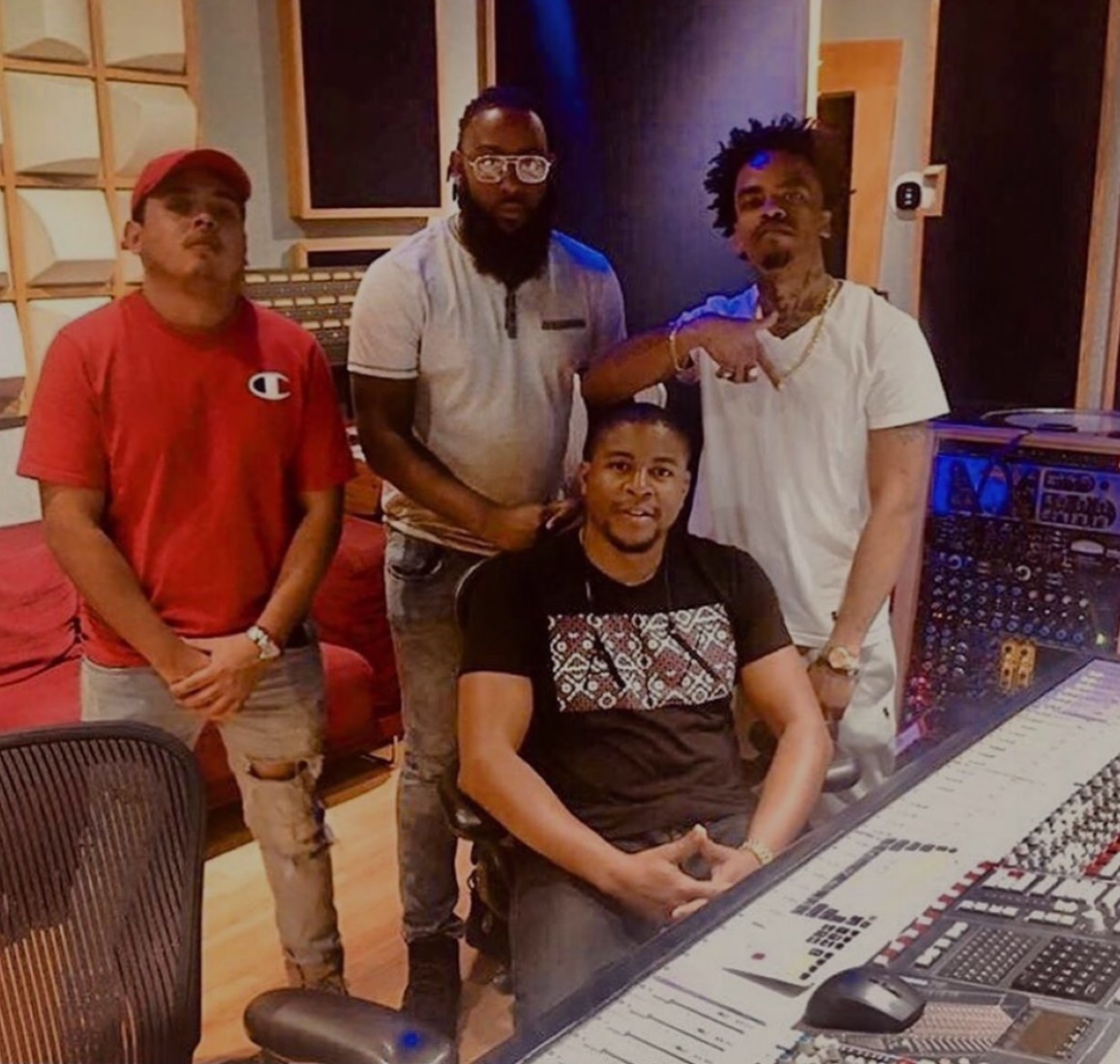
Recording Connection graduate Russell Davis (at console) with Miguel, Jermel, and Tre Se7en (from left to right) at recent “Meeting at the Booth” session.
When
Russell Dennis enrolled in
Recording Connection for Audio Engineering & Music Production, he was already successful by many people’s standards. As an instructional designer and technical support specialist, he was making a good living serving clients IBM, Bank of America, and ADT Security. Yet despite the status quo, Russell yearned to get back to what he loved, making music, recording it, and working with artists. A self-taught producer, he’d been making tracks since 2006. Understandably, work and family life cut into his music. Things could have continued that same way for years, were it not for a decision he made.
We recently talked to Russell about the decision he made, finding Recording Connection, and where he’s at today.
Your decision to change career paths was sparked by a conversation you had with a former manager at your old job. What can you tell us about that?
“My former manager, Cassandra Bray, she used to just do all these incredible things. She would maybe fly to where the main corporate office was at one in the morning and come back to work at four in the morning the next day. So, I remember one time…I said, ‘How do you do this?’ She said, ‘It’s passion. If I didn’t love what I was doing, I wouldn’t be able to do this.’
She asked me what I was passionate about, and I told her music.
She said, ‘Why don’t you do it?’ I said, ‘I’m 32 years old, I have a family, I have responsibilities. I don’t have time to pursue music.’ She said, ‘You’ll never be happy if you don’t pursue what you’re passionate about.’ So that resonated throughout this whole process.”
How did you find us?
“When I saw the Recording Connection [online], I clicked on it. The idea of being able to learn right in a studio appealed to me the most because that’s how I learn. I didn’t want to go to school and learn Music 101. I wanted to be able to do the things that would be transferable to when I applied for a job and I finished the program, so that I could be confident to know that I know what I’m doing.”
Are you more confident today than before you joined the program?
“[When I met Rick, my mentor] I just explained to him that I’ve always been into producing music, I just never had the skill set of making it sound good through engineering. And I told him once I learn that, that’ll really help me feel more confident about selling my products and pursuing this as a job.
“I can’t even go in depth about the amount of hours [I spent] and my family. My daughter Deja, who was my motivating factor behind me doing all of this, I could not have done this without her. She can tell you the times that I just kept playing a snippet of a song over and over and over because I was trying to EQ it the right way…
My proudest moment was when I got hired on at Vision 3 Studios and I was able to bring her to the studio and let her record one of her favorite songs, by Billie Eilish. She was able to record her song there. So that was a special moment for me as well. Shout out to Deja Dennis and to my wife Joana Torres.”
What was it like to extern with longtime Recording Connection mentor Rick Rooney at Empire Sound?
“Rick Rooney is the man. He’s no nonsense…He’s just used to people coming in and realizing that this may be a bit more than they can chew. But once he sees that you are willing to put in the work, he’s extremely supportive.
I remember I had a mix that I was working on, and I was using an HP computer, and it was really slow, and I said, ‘Rick, I’m trying to do these vocals,’ like this song that was mixed by some famous engineer. Rick was trying to help me on it….He was like, ‘We can work on that, Russ, but it’s going to be really hard on your computer.’ He sat there for a good two hours trying to help me, and then he was like, ‘Just go home and work on it and let me know what you come up with the next day.’
So I went home and I worked on the mix for about eight hours straight, and I came back the next day and said, ‘Rick, I worked on that mix.’ He said, ‘Cool, man. Get that on the speakers and we’ll check it out.’ I played it back for him, and he listened and kind of jumped back a little bit, he looked at me and said, ‘You did that?’ And I said, ‘Yeah, Rick. It took me about eight hours, but I did it.’ And for a good month straight, Rick bragged to just about everybody there at the studio….That gave me a confidence booster like no other. So Rick is like a caring father in a way, you know, to the people who show that they care about this for real.”
Has the production quality of your songs improved through the course of your training?
“I spent my entire time in the program teaching myself how to play keyboard. I just read any book I could get my hands on and watched a lot of tutorials on YouTube on how to play keyboard. So that definitely helped me improve my production. Then of course, applying the different treatments from engineering, my sound has completely changed.
At one point I would play my music and most people would say, ‘Okay, that’s cool, keep working on that.’ Now it’s like, ‘Wow, man! How much are you selling that for?’ I mean, that’s no exaggeration. It really just went from one thing to the other.”
So what are you doing at Vision 3 Studios?
“I am a recording engineer there….Once I had my resume and references, everything that my career counsellor, Gervais Maillard, helped me set up for me to look for jobs, it really had a hand in Vision 3 choosing me as the engineer. They were really impressed with the professionalism, the layout of the resume and everything. I’ve also started working at LMG Studios as an engineer…
I definitely want to say that I had probably a picture perfect group of people help me at the Recording Connection. I definitely want to shout out Gervais Maillard. I 100% have to shout out Corey Titov. That guy right there, I couldn’t have gone through the program without him. He was very patient with me. I have some great counsellors out there at Recording Connection.”
Did you work with any artists while you were in the program?
“One of the artists I worked with was Azán. She has a single out right now called Sunshyne. I worked with her early on in my time at the Recording Connection. She did a cover of Summer Walker’s “CPR.”
I actually invited her to the studio, to Empire Sound Studio, Rick was there. He helped me to set everything up, and just gave me basic rules and best practices. How to make artists feel comfortable, make sure there’s some warm water there, make sure I give them time to warm up, make sure I’m there early. I’m very excited to have worked with her because her career is really taking off.”
So how did you connect with Azán in the first place?
“My biggest way to reach out to artists is on Instagram. Definitely important to follow all the hashtags, wherever you are….When I recorded her, I didn’t charge her or anything like that. I just simply invited her to the studio and just gained the experience. I mean, not everything’s going to be about money. It’s about building relationships.”
You’ve also started a meetup at Empire Sound. What can you tell us about that?
“It’s called Meeting at the Booth. I have it every other Wednesday. I go on Instagram and invite artists down to Empire just like I did with Azán, and I allow them to just showcase whatever it is that they do. My goal is to have a network of artists and creators that I can reach out to at any given moment. I’ve had the opportunity to do that so far with a lot of my artists.”
So what, in your opinion, can students do to make the most of their time in Recording Connection?
“If you are following the same format as Rick, where you have a song that’s completely unmixed, there’s nothing done to it, and then you go and you work on it and you’re proud of what you’ve done, definitely have a portfolio of all of those mixes…where you can put [together] a slideshow of what the mix sounded like before you did it and what it sounded like afterwards….Definitely record at the studio as much as possible. Don’t be afraid to record, and become good friends with the people that are there in the program, because I had Alex Schwarting reach out to me and she told me she was interested in Meeting at The Booth. And I found a great position for her to help me with doing that. So it’s important to befriend the people that are in the program with you.”
Learn more about
Recording Connection and checkout our programs for Audio Engineering & Music Production, Hip Hop Production, Beat Making, and more.
* * * * *

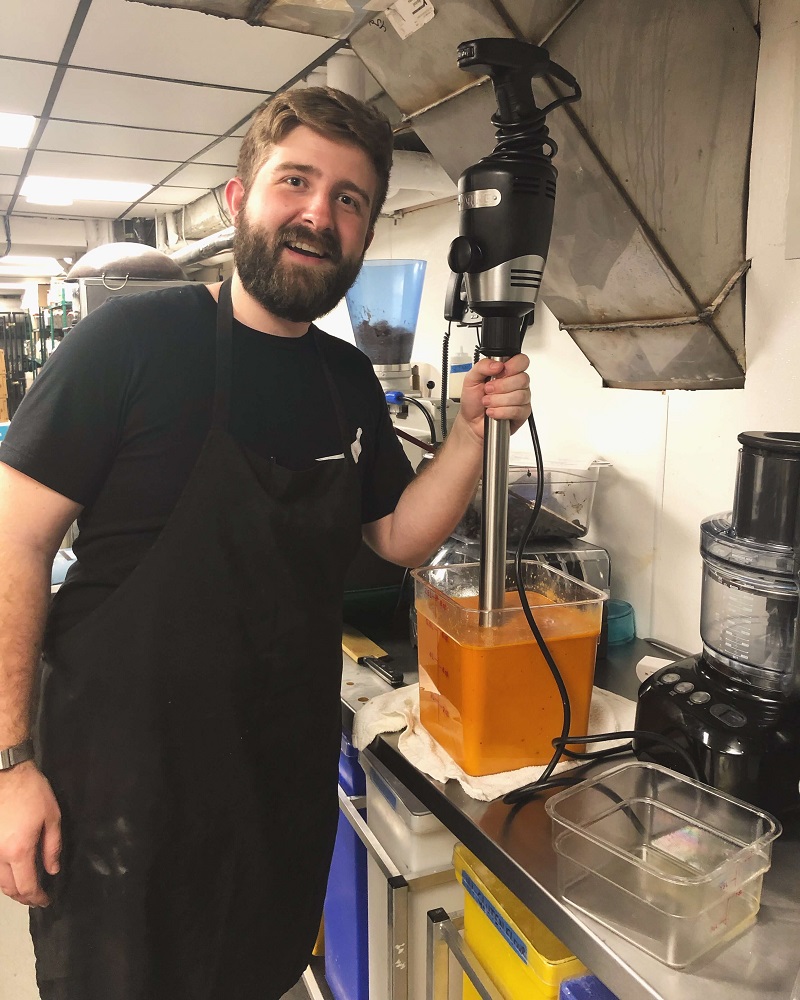
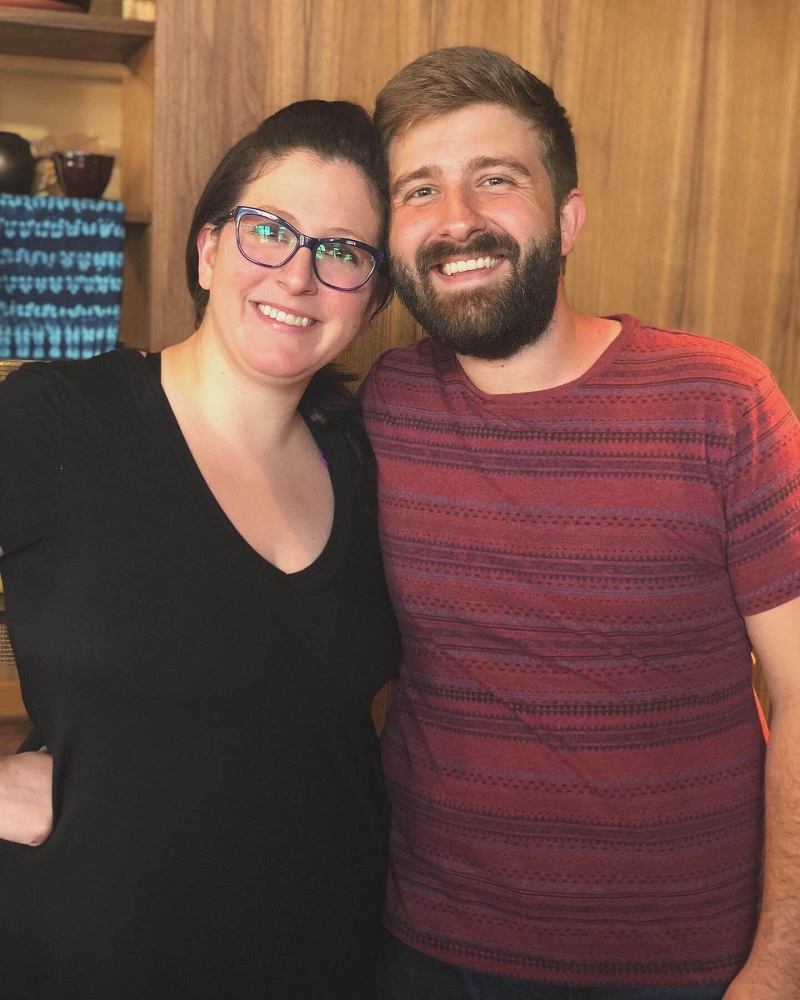
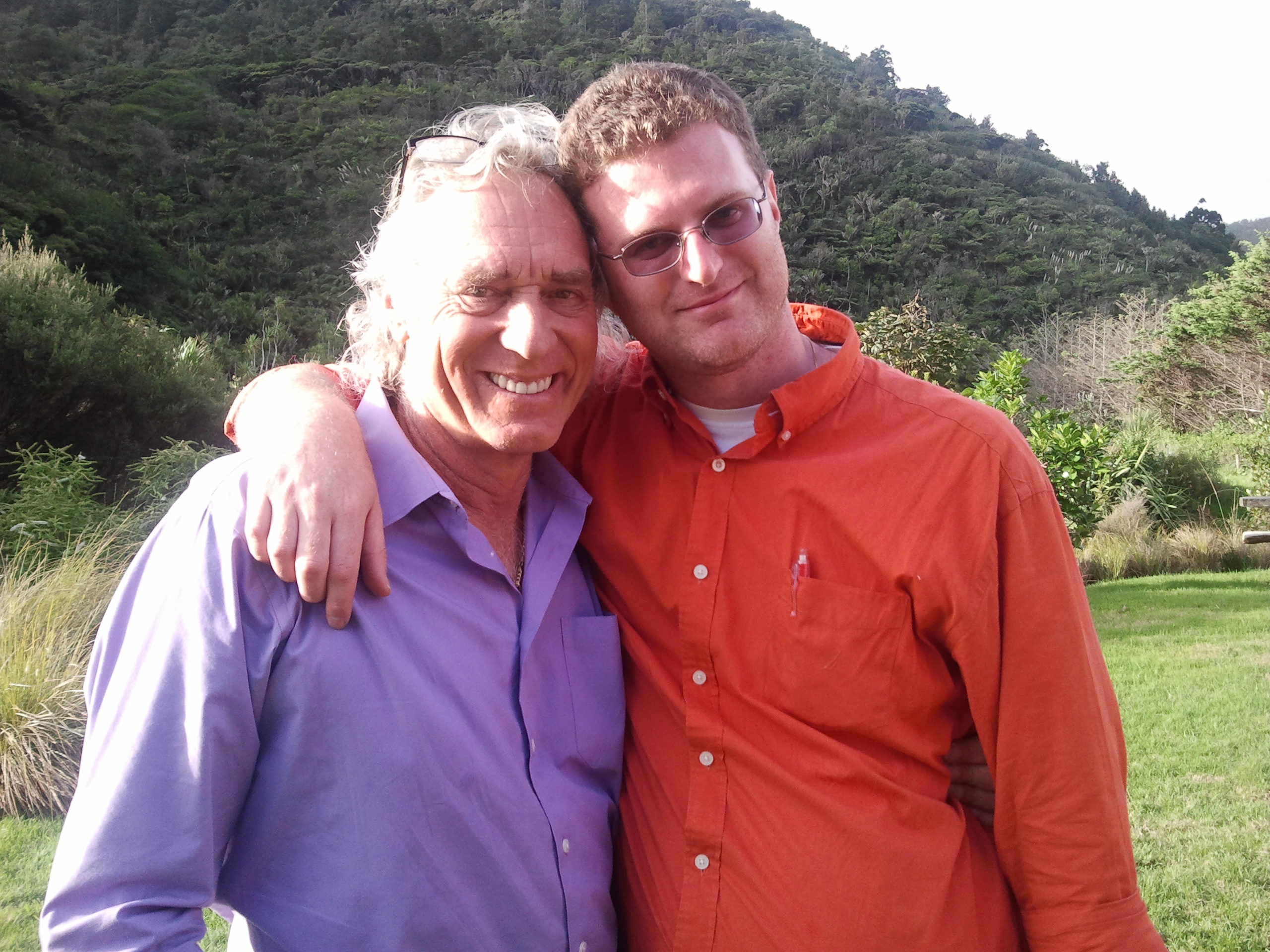
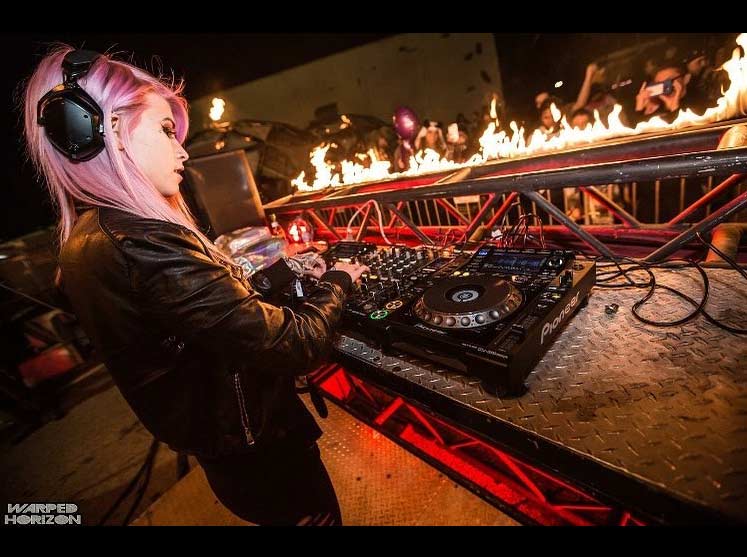 Recording Connection graduate Emily Stamer aka Lucii is playing Thunderdome 2020!
Headlined by dubstep king Excision, she’ll be playing the 2 day music festival with Riot Ten, WOOLI, Trampa, Liquid Stranger, G-REX, YAKZ and more!
A graduate of Recording Connection for Advanced Ableton Production, Emily had the epiphany that led her to double-down on her music career while she was attending the Electric Daisy Carnival, watching Bassnectar perform:
“I saw Bassnectar’s performance and I literally just had a weird connection with it. I felt like I should be up there instead of watching…I really felt like I was destined to be performing.”
Learn more about her journey and experiences training with Recording Connection mentor Joey Paranoia in this issue of the newsletter.
Sending a big congrats to Film Connection for Film Production & Editing graduate Katz Carter (Los Angeles, CA) on the premiere of his suspense-thriller #FullMethod!
Recording Connection graduate Emily Stamer aka Lucii is playing Thunderdome 2020!
Headlined by dubstep king Excision, she’ll be playing the 2 day music festival with Riot Ten, WOOLI, Trampa, Liquid Stranger, G-REX, YAKZ and more!
A graduate of Recording Connection for Advanced Ableton Production, Emily had the epiphany that led her to double-down on her music career while she was attending the Electric Daisy Carnival, watching Bassnectar perform:
“I saw Bassnectar’s performance and I literally just had a weird connection with it. I felt like I should be up there instead of watching…I really felt like I was destined to be performing.”
Learn more about her journey and experiences training with Recording Connection mentor Joey Paranoia in this issue of the newsletter.
Sending a big congrats to Film Connection for Film Production & Editing graduate Katz Carter (Los Angeles, CA) on the premiere of his suspense-thriller #FullMethod!
